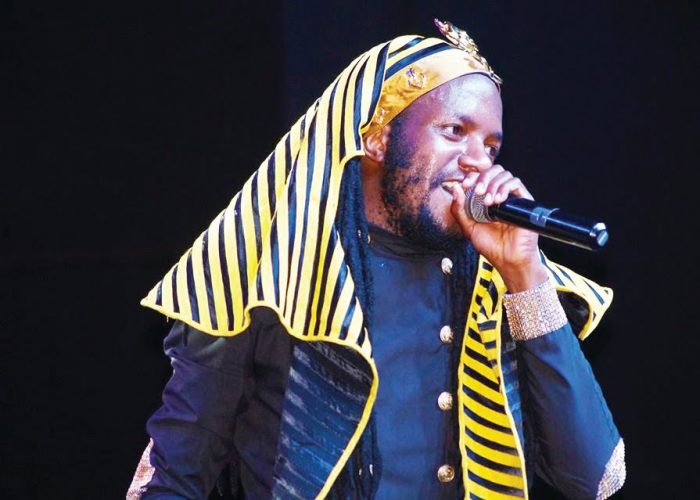



Wallace Chirumiko better known as Winky D
By Darius Mutamba.
POETS novelists and literature fanatics would agree with me that metaphors are a literature device used in most if not all types of literature, but more often are common in poetry. This is so mainly because works of poetry like all great art pieces is meant to provide a complex mental imagery and provoke feelings.
Metaphors give writers the poetic license to to make heard vividly the nuances of emotions, experiences and so on. In relation to the recently released Gombwe album lyricist Winky D’s narrative technique and apt metaphors are a set standard for lingo. Yes the way Winky D coined his album surely can not go unnoticed. His combination of rhymes, metaphors lyrical delivery and vocabulary is in many ways intrinsically pleasurable.
Since time immemorial Dancehall music has been known to be a social economic and political commentary of unfolding events, associated with various valueless behaviors, Zimbabwe adopted this genre in its culture and Winky D without doubt rose to became the contemporary king of Zimbabwe dancehall.
His music has since reflected the creativity of youth in their surviveal skills during harsh economic conditions, how they celebrate their strides and their successes and also to an extent has encouraged them to live happy as free spirits .
However taking a look at his new Album Gombwe. The title alone translated to English can mean a guardian spirit medium and or refers to those who dwell in the mysticisms.
The album is not the typical ‘in your face’ dancehall style true to its name; dancehall.
Winky D is known to come up with his own unique styles of danceable dancehall music that raves the heartbeat and knocks out party animals on dance floors. This is because dancehall, by its nature, is a danceable genre of music.
Except, maybe, for tracks Finhu Finhu and City Life, the rest are on the mellow side, in other words, listeners’ music. The mellow feel, however, does not make the album bad, whatsoever; its only an observation.
It is Winky D’s rightful choice to experiment with beats and allow his music to evolve; but what is inspiring this change. Well thats a topic for another day.
The track Ngirozi, featuring Vabati vaJehova, may prove to be album’s plug tune, judging by the airplay. The idea, of collaborating with the gospel a cappella group, on Ngirozi, was a great idea only poorly executed. There is no true collaboration, in the song, because the a cappella does not sound like a group singing together, on the same track with Winky D, but rather sound like a lone voice lost somewhere in the wilderness. Why was the a cappella suppressed because to the ear, their vocals lack the powerful projection typical of the group.
Why are Vabati VaJehova subdued? The idea of collaborations, in recorded music or just stage performance, is to create an elevated product because you are combining, closely together, talents. We don’t see that talent combination in the track; yet this was the opportunity for Winky D to prove his creative prowess on vocal arrangement, because he had one of the best a cappella groups at his disposal. Missed opportunity I presume or maybe thats how Winky prefers it since on his earlier track with Tuku he also subdues the superstars vocals, try again Winky.
Winky D idolizes his producer Oskid, in almost every track, and by so doing gives the whole album an element of monotony. Was it necessary for Wink D to acknowledge his producer in the lyrics of almost every track?
Ah, well, time will till how fans respond to this album. In totality with the exception of a few tracks , it may not reach the dizzy heights of his previous hits as fans adapt to his mellow approach to things.